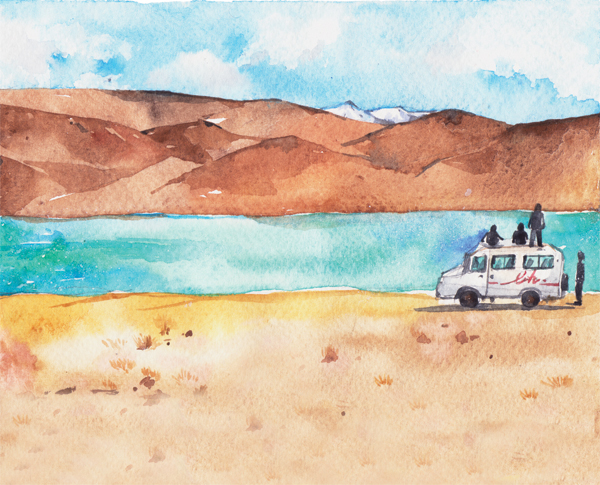
Commuters are definitely feeling the drop in temperatures; motorists are embracing the temperature changes by driving around their tops and windows down and planning road trips during the winter season. A road trip is a serious test for any vehicle and seemingly small issues that can hamper the trip in a big way, such as an old battery, are often overlooked. Before embarking on any kind of road trip – whether crossing borders or going to the desert is on the cards, it is recommended to give the car the once over to ensure a stress free trip this outdoors season.
While this guide is intended to give readers an overview of the things they should consider when checking their car, a visit to the dealership’s service centre should always be the first port of call when in doubt.
Begin at the Beginning:
The Owner’s Manual
Have a look through the owner’s manual and ensure that you always have a copy, in print or digital, when embarking on a road trip. The owner’s manual contains useful and practical information that could help you when towing a trailer, changing a flat tyre, and jump starting the car – in case you forget to replace an old battery. If you do not have a physical copy of the owner’s manual, many companies offer a free digital download for your safety and convenience.
Delve Under the Hood
• Ask yourself – are there any leaks? Does the drive belt look worn? Do the battery terminals look corroded? These are all vital elements of the engine that should be looked at before embarking on any kind of road trip.
• Check all the fluids. Start with the engine oil – many vehicles have an onboard computer that uses an algorithm to calculate when an oil change is due. Always choose a trusted brand for your oil and other fluids such as coolant, brake fluid and vehicle care chemicals – ACDelco, for example offers a complete range to suite any vehicle needs. Other fluids you can check include automatic transmission fluid and engine coolant.
• Check the air filter. A dirty air filter can cause lack of power and will have a negative impact on the air quality inside the vehicle. We live in a very dusty part of the world, hence it is recommended to check the air filter with each oil change.
• Test the battery. Visually, the most obvious clue regarding a bad battery is corrosion, acid leaks, and cracks – ACDelco batteries, for example, include a status light that glows green when the battery is in good shape. If the battery has none of these, and you haven’t changed it in a while, it makes good sense to get it tested prior to any road trip, as an old battery is often difficult to detect and can die quite unexpectedly – which is not a good thing when camping in the desert. If you often take road trips, invest in a top of the line battery, such as ACDelco which utilises stamped grid technology that improves battery strength and power, and requires zero maintenance.
External Elements:
Lights and Tyres
• Our main roads are often flooded with bright lights making the visual aspect of night time driving a pleasure. On a road trip – that is not always the case, which is why it is vital to check that all lights, front and rear, as well as headlights, brake lights, and fog lights are all in working order.
• Read the tread. The tyres are probably the most important part of the car for any road trip. ACDelco recommends that tyre pressure is checked at least once a month – and more often in the cooler months as air pressure tends to drop with the temperature – following the recommended tyre inflation for your vehicle. It is also important to check the tread – anything less than 1.6mm is a warning sign that the tyres have to be replaced – especially before a road trip. If going off-road is a part of your road trip, ensure to enter and leave the desert at a point next to a fuel station or to have your own air compressor as reducing tyre pressure is essential for desert driving. Consult the owner’s manual as a guide for your tyres and vehicle capabilities.
Remember not to leave the vehicle check to the last moment – do it a few days before the trip to ensure comfort, convenience and safety along the way.